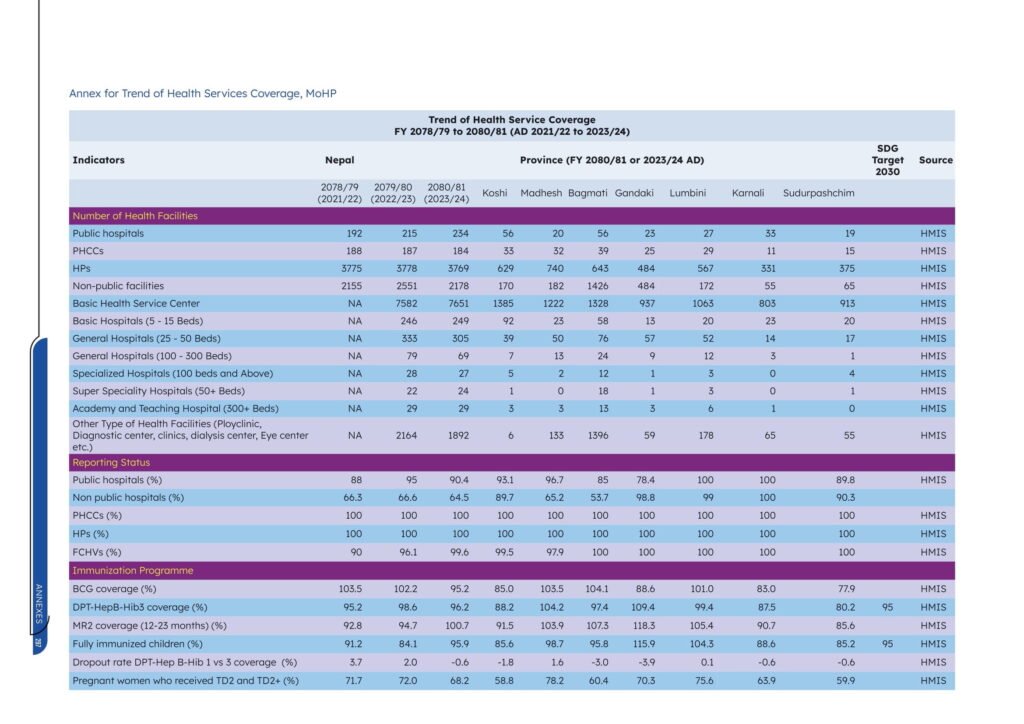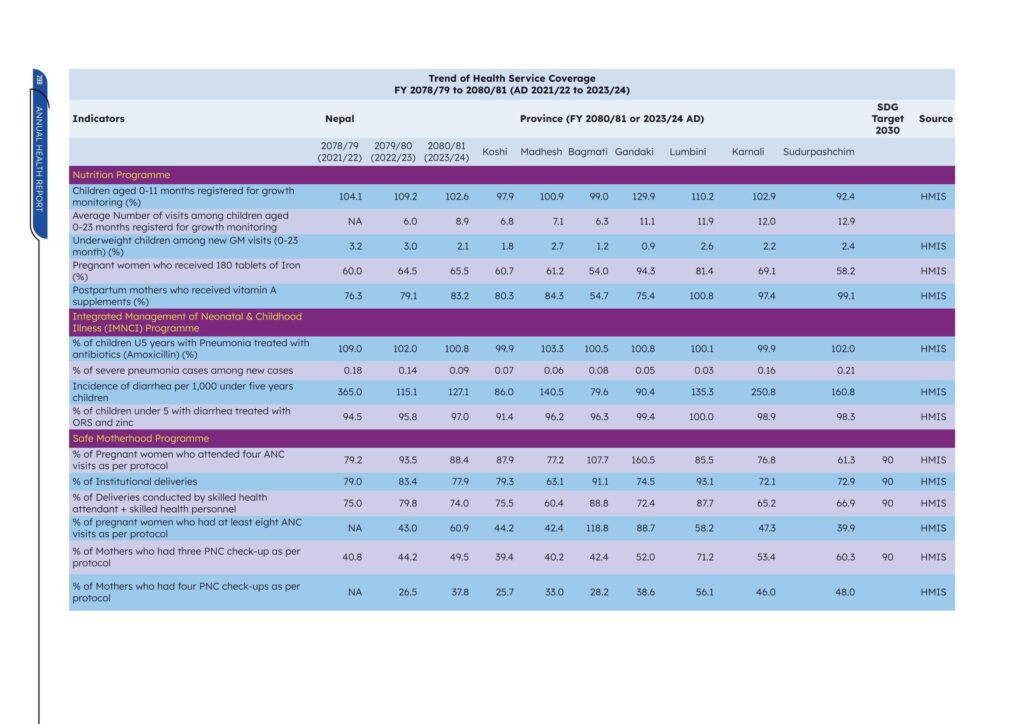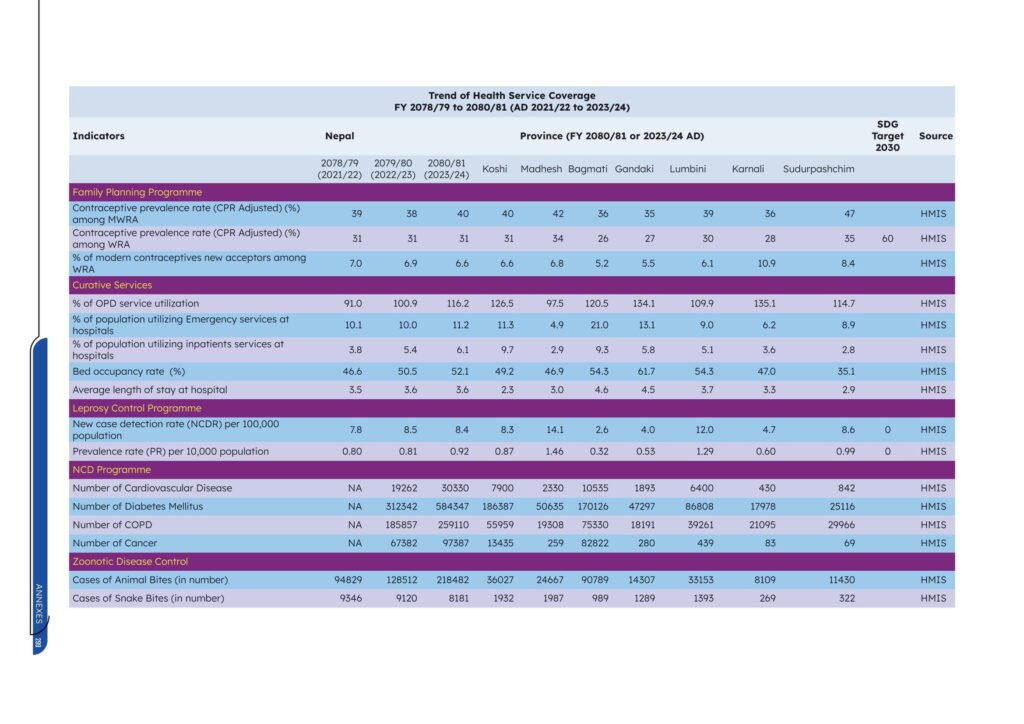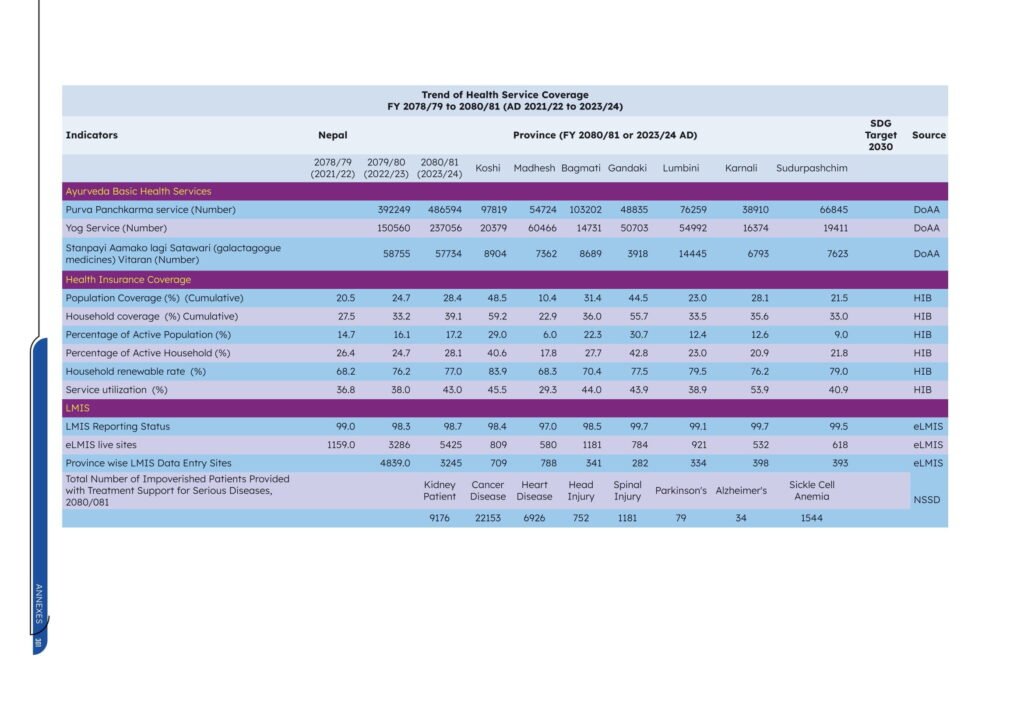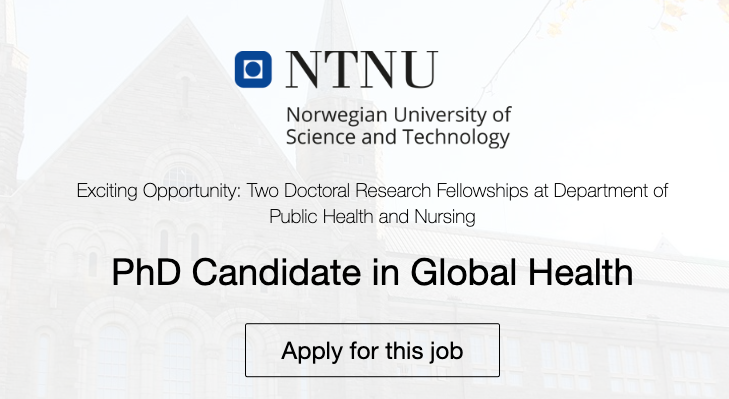Overview
The Seventy-eighth World Health Assembly (WHA78), the premier decision-making body of the World Health Organization (WHO), concluded on 27 May 2025 in Geneva, marking a week of major public health milestones and reaffirmed international cooperation. Held from 19 to 27 May 2025 under the theme “One World for Health,” the assembly brought together delegates from WHO Member States to discuss and adopt critical resolutions shaping the global health agenda.
In a historic moment on 20 May, Member States adopted the world’s first WHO Pandemic Agreement, aimed at preventing the recurrence of devastation witnessed during COVID-19. The agreement resulting from three years of intense negotiations focuses on strengthening global coordination, ensuring equitable access to health tools, and balancing international solidarity with national sovereignty. Member States will now begin consultations on the Pathogen Access and Benefit Sharing (PABS) system, a key annex to the agreement.
During the World Health Assembly, numerous bilateral meetings, high-level discussions, strategic dialogues, and formal commitments were convened. In addition to its main sessions, WHA78 featured a vibrant lineup of nearly 300 side events and sessions, drawing attention to urgent global health issues such as Universal Health Coverage (UHC), climate and health, noncommunicable diseases (NCDs), communicable diseases, health emergencies, human resources for health, health financing, and digital innovation. Global health professionals, parliamentarians, health ministers, delegates from member states, students, and other stakeholders gathered throughout the week to engage, collaborate, and advocate for more inclusive and effective global health governance.
Key updates
**World Health Assembly adopts historic Pandemic Agreement to make the world more equitable and safer from future pandemics**
Member States of the World Health Organization (WHO) formally adopted by consensus the world’s first Pandemic Agreement. The landmark decision by the WHA78 culminates more than three years of intensive negotiations launched by governments in response to the devastating impacts of the COVID-19 pandemic and driven by the goal of making the world safer from – and more equitable in response to – future pandemics.
Documents
- Draft resolution on the WHO Pandemic Agreement A78/10 Add.1
**World Health Assembly commits to historic 20% increase in Assessed Contributions (membership fees), approves WHO’s Base Programme Budget for 2026–2027 of US$ 4.2 billion**
Delegates at the WHA78 approved the base programme budget of US$ 4.2 billion for 2026–2027, the first to be fully developed based on the Fourteenth General Programme of Work, 2025–2028 (GPW 14), the global health strategy for the next four years. GPW 14 prioritizes advancing health equity and strengthening health systems resilience. Member States also approved the gradual second 20% increase of the assessed contributions (AC), or membership fees which had been previously adopted by the Member State Working Group on sustainable financing. This ensures that WHO funding is not only predictable, but also resilient and flexible, which is critical given the rapidly changing financial landscape.
Documents
- A78/6, Proposed programme budget 2026–2027 (Corrigendum 1) (Add.1)
- A78/37, Report of the Programme, Budget and Administration Committee of the Executive Board to the Seventy-eighth World Health Assembly
- A78/INF./8, General Programme of Work, 2025–2028: baselines and
targets for outcome and output indicators - A78/4, Consolidated report by the Director-General
- A78/5, Governance reform (Add.1)
- A78/39, Governance reform, Process of handling and investigating potential allegations against WHO Directors-General
**Report on the health conditions in the occupied Palestinian territory, including east Jerusalem, and in the occupied Syrian Golan**
The WHA78 noted a report from the Director-General, outlining WHO’s humanitarian and emergency health response in the occupied Palestinian territory, including east Jerusalem, and in the occupied Syrian Golan, from January 2024 to February 2025.
Documents
- A78/16: Health conditions in the occupied Palestinian territory, including east Jerusalem, and in the occupied Syrian Golan
- A78/B/CONF./1: Health conditions in the occupied Palestinian territory, including east Jerusalem, and in the occupied Syrian Golan
- A78/B/CONF./1 Add.1: Financial and administrative implications for the Secretariat of decisions proposed for adoption by the Health Assembly.
**Health progress despite financial challenges**
Committee B noted the Results Report 2024, and the financing and implementation of the Programme budget 2024–2025. Member States commended the transparency, and the level of detail provided. At the same time, Member States noted with concern that while some important achievements have been realized, progress is insufficient in reaching the SDG targets. In addition, Member States also advocated for more equitable funding across the Organization. The committee approved decision 78/17 Add.1 and 78/17 Add.2.
Delegates welcomed WHO’s Investment Round (IR), which will fund the Organization’s Fourteenth General Programme of Work – 2025–2028 (GPW 14) – its global health strategy for the next four years that has the potential to save 40 million lives if fully funded. By April 2025, pledges of US$ 1.7 billion had been received. During the Health Assembly at least an additional US $210 million was committed, with further amounts expected. Since the start of the Investment Round, 62 pledges have been made by Member States, with a further 20 pledges by philanthropic organizations. Of the 62 pledgers, 35 had not previously provided voluntary contributions to WHO.
Documents:
- A78/17 Results report 2024 and financial report and audited financial statements for the year ended 31 December 2024
- A78/17 Add.1 Draft decision: Results report 2024 (Programme budget 2024–2025: performance assessment) and Financial report and audited financial statements for the year ended 31 December 2024
- A78/17 Add.2 Draft decision: Partial and temporary suspension of Financial Regulation VIII, 8.2
- A78/18 Audited Financial Statements for the year ended
- A78/36 Results report 2024 (Programme budget 2024–2025: performance assessment) and Financial report and audited financial statements for the year ended 31 December 2024
- A78/INF./3 Voluntary contributions by fund and by contributor, 2024
- A78/19 Financing and implementation of the Programme budget 2024–2025
- A78/20 Financing and implementation of the Programme budget 2024–2025: Reporting on operational efficiencies
- A78/INF./4 Financing and implementation of the Programme budget 2024–2025 WHO presence in countries, territories and areas
- A78/21 Sustainable financing: WHO investment round
- A78/37 Proposed programme budget 2026–2027 – Sustainable financing: WHO investment round (Report of the Programme, Budget and Administration Committee of the Executive Board to the Seventy-eighth World Health Assembly)
**Strengthening health emergency preparedness and response**
On 21–22 May 2025, the WHA78 discussed WHO’s work in health emergencies. Over the last year, WHO responded to 51 graded emergencies across 89 countries and territories, including global outbreaks of cholera and Mpox – a public health emergency of international concern – as well as multiple humanitarian crises. Working with over 900 partners across 28 health clusters, WHO helped provide health assistance for 72 million people in humanitarian settings. Nearly 60% of new emergencies were climate-related, highlighting the growing health impacts of climate change. Member States noted the WHO Director-General’s report on the implementation of the health emergency prevention, preparedness, response and resilience (HEPR) framework. Delegates noted the report of the Independent Oversight and Advisory Committee (IOAC) for WHO’s Health Emergencies Programme.
Documents:
- A78/13 WHO’s work in health emergencies
- A78/12 Health emergencies preparedness and response: The Independent Oversight and Advisory Committee for the WHO Health Emergencies Programme
- A78/9 Strengthening the global architecture for health emergency prevention, preparedness, response and resilience
- A78/4 Consolidated report by the Director-General (including UHPR)
**International Health Regulations remain a cornerstone of global health security**
Member States noted the Director-General’s report on progress made in implementing the International Health Regulations (2005), which outline the rights and obligations of countries in managing public health events and emergencies that have the potential to cross borders.
Member States recommended to the Assembly the adoption of a decision for the Director-General to notify Palestine of the International Health Regulations (2005). This is a step prior to Palestine expressing interest in becoming a States Party to the Regulations. This follows the resolution approved during the World Health Assembly last year on aligning the participation of Palestine in WHO with its participation in the United Nations. The Assembly also noted the Standing Recommendations issued by the Director-General on COVID-19 (valid until April 2026) and mpox (valid until August 2025).
Related documents:
- A78/11 Implementation of the International Health Regulations (2005)
- A78/A/CONF./4 Notifying the International Health Regulations (2005) to Palestine
- Resolution WHA77.15 (2024): Aligning the participation of Palestine in the World Health Organization with its participation in the United Nations
- A78/INF./6 Implementation of the International Health Regulations (2005) Extension of the standing recommendations for mpox
- A78/INF./7 Implementation of the International Health Regulations (2005) Extension of the standing recommendations for COVID-19.
**Member States urge research into public health and social measures to control outbreaks and pandemics**
Member States approved a decision related to public health and social measures, urging the strengthening of the research base on these interventions. Public health and social measures are nonpharmaceutical interventions used to reduce the spread of an infectious disease and lower hospitalizations and death.
Documents:
- EB156/2025/REC/1, decision EB156(31) Strengthening the evidence-base for public health and social measures
**WHO’s response to health needs in Ukraine and refugee-hosting countries**
Delegates noted the Director-General’s report on the implementation of a resolution on WHO’s response to the health emergency triggered by the Russian Federation’s aggression against Ukraine. The draft decision proposed by Ukraine and other countries to continue, among other things, to restore and strengthen Ukraine’s health-care system was approved. Suggested amendments to the draft decision proposed by the Russian Federation and other countries were rejected.
Related documents:
- A78/14 Implementation of resolution WHA75.11 (2022)
- A78/A/CONF./3 Health emergency in Ukraine and refugee-receiving and -hosting countries, stemming from the Russian Federation’s aggression
- A78/A/CONF./3 Add.1 Amendments proposed by Belarus, China, Nicaragua and the Russian Federation
- A78/A/CONF./3 Add.2 Financial and administrative implications for the Secretariat of decisions proposed for adoption by the Health Assembly.
**Health conditions in the occupied Palestinian territory, including east Jerusalem**
Delegates noted the Director-General’s report on the current health conditions in the occupied Palestinian territory, with the Gaza Strip facing an unprecedented humanitarian crisis, with widespread displacement, destruction and death. The Member States noted the report and commended WHO’s efforts towards the continuity of health services under difficult conditions. Delegates approved an accompanying resolution.
Related documents:
- A78/15 Health conditions in the occupied Palestinian territory, including east Jerusalem
- EB156/2025/REC/1, resolution EB156.R3 Health conditions in the occupied Palestinian territory, including east Jerusalem.
**New guideline calls for improved global access to controlled medicines**
The World Health Organization (WHO) has released a rapid communication outlining its new guideline on balanced national policies for controlled medicines. The guideline was officially presented during a high level side event at the Seventy-eighth World Health Assembly. The updated WHO guideline offers a clear roadmap for Member States to develop and implement balanced national policies that support the medical and scientific use of controlled medicines while protecting individuals and communities from the risks associated with non-medical use.
Document:
**Landmark resolution on lung health approved**
Member States approved a landmark resolution on lung health, recognizing the urgent need to tackle respiratory diseases and their major risk factors, including air pollution and tobacco use. The Resolution aims to strengthen national and global actions to prevent, diagnose, and manage common lung conditions such as asthma, chronic obstructive pulmonary disease (COPD), lung cancer, pneumonia and tuberculosis.
The Resolution calls for improved access to affordable care, greater investment in clean air policies, and integrated strategies linking lung health with broader efforts on NCDs and climate resilience. This milestone reaffirms global commitment to protecting respiratory health and preventing millions of avoidable premature deaths each year.
Document:
**Assembly approves first-ever resolution on kidney health**
The first-ever WHA resolution on kidney health, led by Guatemala and co-sponsored by multiple Member States, was approved – recognizing kidney disease as a growing global public health issue. It urges countries to integrate kidney care into national health strategies, expand prevention, early detection and treatment efforts, and strengthen primary health-care services. This Resolution represents a major step forward in reducing the global burden of kidney disease as part of the efforts to address NCDs and advancing UHC.
Document:
**Resolution calls for scaling up eye, hearing care and prevention**
Resolution on primary prevention and integrated care for sensory impairments invites countries to adopt or adapt and implement the recommendations outlined in the World report on vision and World report on hearing.
Document:
**World Cervical Cancer Elimination Day announced as official health campaign**
The Assembly reaffirmed its commitment to cervical cancer elimination and established World Cervical Cancer Elimination Day, to be marked on November 17, annually.
Documents:
- EB156(22)
- Global strategy to accelerate the elimination of cervical cancer as a public health problem
**Countries agree to extend timeline for global action plan on dementia**
Countries have endorsed a decision to extend the Global action plan on the public health response to dementia from 2025 to 2031, following a recommendation from WHO’s Executive Board. The revised timeline brings it in line with the Global action plan on epilepsy and other neurological Disorders 2022 2031, supporting a more coherent approach to the global response to neurological conditions.
Documents:
- A78/4
- EB156/36
- WHO’s work on dementia
- Global action plan on the public health response to dementia
- Global action plan on epilepsy and other neurological disorders
**Countries commit to improve nutrition for mothers and young children**
Countries recommitted to tackling malnutrition in mothers, infants and young children, and agreed to new indicators to advance progress in critical areas like diversifying diets and breastfeeding. This Resolution also extended the deadline for meeting the targets of the current global comprehensive plan until 2030.
Documents:
**Global digital health strategy extended to support health system transformation**
In a decisive move to advance digitized health systems, Member States agreed to extend the Global Strategy on Digital Health 2020–2025 through to 2027. They also approved a decision for the development of a new Global Strategy on Digital Health for 2028–2033, ensuring alignment with efforts such as the UN Pact for the Future and the Sustainable Development Goals.
Documents:
**Global Strategic Directions for Nursing and Midwifery extended to 2030**
Delegates welcomed WHO’s recommendation to extend the Global Strategic Directions for Nursing and Midwifery to 2030, underlining the essential role of nurses and midwives in delivering health services and strengthening systems. The recently launched State of the world’s nursing report 2025 reveals that nurses account for approximately 39% of the global health workforce shortage, emphasizing the urgent need to address nursing deficits to achieve universal health coverage.
Related documents:
- EB 156(34)
- State of the world’s nursing report 2025
- The WHO Global Strategic Directions for Nursing and Midwifery (2021–2025)
**Member States commit to urgently address social connection**
A historic resolution adopted by the World Health Assembly recognized the crucial role that social connection plays in health and well-being for people of all ages. The Assembly agreed that social connection, which is characterized as the ways people relate to and interact with others, needs to be addressed as a public health priority, based on growing evidence linking it to improved health outcomes and reduced risk of early death. This phenomenon is becoming increasingly relevant in the context of rapid technological shifts and long-term social trends.
Documents:
**Sustain polio eradication through stronger health systems**
Member States reaffirmed support for a polio-free world, commending progress in stopping a wild poliovirus outbreak in several countries in Africa and addressing remaining challenges in Afghanistan and Pakistan. They welcomed advances in ending variant outbreaks, including success in Madagascar, while noting persistent risks in regions such as Nigeria, Democratic Republic of Congo, Somalia and Yemen. Emphasis was placed on vaccine trust, gender equity, and humanitarian access, exemplified by successful campaigns in Gaza. Members stressed the urgency of sustaining eradication through strong health systems, containment, and strategic transition of polio assets. They backed the extended strategy to 2029, calling for innovative, diversified funding and continued political and financial commitment.
Documents:
- A78/4
- EB156/22
- A critical moment for global public health: Polio eradication at the 2025 World Health Assembly
**Report on smallpox eradication: destruction of variola virus stocks**
Although smallpox was eradicated in 1980, the virus is held in two locations under WHO supervision to enable research, one being in the Russian Federation and the other in the United States of America. Delegates noted the report, recalling the importance of achieving smallpox eradication, and their commitment to the responsible destruction of variola virus, while recognizing the importance of ongoing essential research with transparency and international oversight.
Documents:
**Enhancement of laboratory biosafety**
Delegates noted a report on efforts towards enhancement of laboratory biosafety. Laboratories require stringent measures to safely contain high-consequence and other impact microbiological agents and toxins.
Documents:
**First-ever rare diseases resolution underscores equity and inclusion**
Member States adopted a landmark resolution declaring rare diseases a global health priority in an effort to ensure that no patients are left behind.
Documents:
** Countries endorse resolution to tackle global health financing emergency **
The Seventy-eighth World Health Assembly approved a new resolution on strengthening health financing globally, reaffirming their commitment to delivering universal health coverage (UHC) through advancing people-centred primary health care.
Documents:
- EB156(16)
- Global spending on health: coping with the pandemic
- WHO Director-General’s opening remarks at the Strategic Roundtable: Data and Sustainable Financing: Twin Foundations to Accelerate UHC – 21 May 2025
- WHO Director-General’s opening remarks at the WHA78 side event – Towards universal health coverage: the centrality of public financing of health at times of crisis – the perils of financialisation – 22 May 2025
**Countries back resolution to boost science-driven health policy and implementation**
In a major step to strengthen evidence-based health systems, Member States approved a resolution to enhance national capacities for developing and adapting public health guidance grounded in high-quality scientific evidence.
Related documents:
- EB156/2025/REC/1
- EB156(14): Strengthening National Capacities in Evidence-Based Decision-Making for the Uptake and Impact of Norms and Standards
**Stepping up efforts to eradicate Guinea worm disease**
The world stands at a turning point in the fight against Guinea worm disease. Fourteen years after the last resolution, Member States have adopted a new one — reaffirming global commitment and signaling renewed momentum for eradication. With only 15 human cases reported in 2024 and transmission confined to five endemic countries, this is a pivotal moment to press forward.
The Resolution underscores the urgent need for sustained political will, financial commitment cross border collaboration, capacity building and investment in safe water access — key to achieving the 2030 eradication target set in the road map for neglected tropical diseases.
Documents:
**Member States recognize skin diseases as a global public health priority**
A resolution on “Skin diseases as a global public health priority” was adopted. The Resolution expresses the unanimous commitment by Member States to address the burden of all conditions primarily affecting the skin as well as those that are systemic but associated with skin manifestations.
Documents:
** Reassignment of Indonesia from the South-East Asia Region to the Western Pacific Region **
Member States considered the request from the Government of Indonesia for the reassignment of Indonesia from the South-East Asia Region to the Western Pacific Region. Committee B noted the report and approved the Resolution proposed, resolving that Indonesia shall form part of the WHO Western Pacific Region.
Document:
**Countries overwhelmingly agree on a new voluntary target for air pollution and health **
Member States at the Seventy-eighth World Health Assembly strongly approved an updated road map for an enhanced global response to the adverse health effects of air pollution, reaffirming their commitment to protect populations from the world’s largest environmental health risk.
Documents:
- A78/4, EB156/24, EB156/2025/REC/1, decision EB156(33)
** Countries commit to regulate the digital marketing of formula milk and baby foods **
In a new resolution, Member States agreed to expand the provisions of the International Code of Marketing of Breast-milk Substitutes (the Code) to tackle the digital marketing of formula milk and baby foods. The Code is a landmark public health agreement passed by the World Health Assembly in 1981, which aims to protect caregivers from aggressive marketing practices by the baby food industry.
Documents:
- EB156/CONF./16 Rev. 1
- Guidance on regulatory measures aimed at restricting digital marketing of breast-milk substitutes
- Scope and impact of digital marketing strategies for promoting breast-milk substitutes
** Member States commit to accelerate action on health and care workforce **
Member States reaffirmed their commitment to protect and invest in the global health and care workforce, identifying specific actions to address national shortages, conditions of work and the increasing rates of health worker migration. The Assembly reviewed the Global Strategy on Human Resources for Health: Workforce 2030, which highlights a slowdown in progress and an increase in the projected global shortfall in health workers to 11.1 million by 2030 – up from the 2022 estimate of 10.2 million.
Countries adopted a resolution – calling for accelerated investment in health professionals’ education, job creation, and retention; improved working conditions; and a harnessing of the potential of digital technologies and AI in support of health workers.
The Assembly also considered new data and recommendations on the international migration of health workers and how to strengthen ethical recruitment in alignment with the WHO Global Code of Practice on the International Recruitment of Health Personnel. A record 105 countries reported on international migration.
Documents:
** Countries approve a landmark resolution for a lead-free future **
With broad support, countries approved a resolution galvanizing global support for a lead-free future. The Resolution affirms the global health sector’s commitment to tackle exposure to lead, one of WHO’s top 10 chemicals of major public health concern.
Documents:
** Member States agree on a new global traditional medicine strategy for 2025–2034 **
Members of the World Health Assembly agreed on the new WHO global traditional medicine strategy to take forward development of evidence-based practice of Traditional, Complementary and Integrative Medicine (TCIM) into the next decade.
Documents:
** World Prematurity Day approved as a mandated global health campaign **
Endorsing the urgent need for action on preterm births, Member States agreed to announce World Prematurity Day as an official WHO health campaign. The campaign will complement efforts to improve prevention of preterm births and ensure lifesaving health care for babies born early or small.
The campaign was approved as part of discussions on the Global Strategy for Women’s, Children’s and Adolescents’ Health (2016-2030), and is aligned with last year’s Resolution to accelerate progress in improving maternal, newborn, and child survival.
Documents:
** Member States agree on actions addressing the health impacts of nuclear war **
Countries agreed on a resolution entitled “Effects of Nuclear War on Public Health”.
Documents:
- A78/A/CONF./1
- World Health Assembly, 36. (1983). Effects of nuclear war on health and health services: report of the International Committee of Experts in Medical Sciences and Public Health to implement resolution WHA34.38. World Health Organization.
- World Health Assembly, 46. (1993). Health and environmental effects of nuclear weapons: report by the Director-General. World Health Organization.
** Assembly to review substandard and falsified medical products report in 2026 **
Countries approved a decision to provide additional time to finalize the report of the fourteenth meeting of the Member State mechanism (MsM) regarding global health threats posed by substandard and falsified (SF) medical products. The final report will now be submitted to the Seventy-ninth World Health Assembly in 2026, via the 158th session of the Executive Board.
Documents:
- Resolution WHA65.19
- WHA76(10)
- EB156/12
- Substandard and falsified medical products
- WHO Member State Mechanism
** Flags of non-Member Observer States **
Delegates decided that “the flags of non-Member Observer States at the United Nations shall be raised at the World Health Organization and does not constitute Member State status in the World Health Organization.” The discussion focused specifically on having the Palestinian flag raised at WHO, as a non-Member Observer State, and cited UN resolution 20.15 as a basis for the flag to be raised there.
Documents:
** Considering the withdrawal of a Member State **
There was a request for the Executive Board, at its meeting in January 2026, to consider the withdrawal of Argentina and to submit a report thereon to the Seventy-ninth World Health Assembly.
Documents:
** Countries agree to update action plan to reduce deaths from antimicrobial resistance **
The Seventy-eighth World Health Assembly approved a decision to update the Global action plan (GAP) on antimicrobial resistance (AMR), for discussion at next year’s World Health Assembly (WHA79) in 2026.
Documents:
**Assembly adopts the Global action plan on climate change and health for 2025–2028**
At the Seventy-eighth World Health Assembly in 2025, Member States expressed support for the first ever draft Global action plan on climate change and health, marking an important step forward in global health and climate policy. The draft Global action plan 2025–2028 (EB156(40)) acknowledged the urgent need to address the health impacts of climate change, positioning health systems as part of the climate solution.
Documents:
- Climate change and health: Draft Global Action Plan on Climate Change and Health A78/4 Add.2
- Documents A78/4, A78/4 Add.2 and EB156/2025/REC/1, decision EB156(40)
- Draft Global Action Plan on Climate Change and Health as contained in decision EB156(40) and
- EB156/25)
List of key decisions, resolutions and approvals
- Adopted a new target to halve the health impacts of air pollution by 2040
- Adopted a resolution on science-driven norms and standards for health policy and implementation.
- Adopted a resolution on the global health financing emergency
- Adopted a resolution to address rare diseases, protecting the over 300 million people globally who live with one of more than 7000 rare diseases
- Adoption of the first-ever Global action plan on climate change and health for 2025–2028
- Agreement to ask WHO to assess Effects of nuclear war on public health
- Approved a global traditional medicine strategy 2025–2034
- Approved resolution on Regulating the digital marketing of breast-milk substitutes
- Deadline extended to meet targets of the current global comprehensive plan until 2030 for Improving nutrition for mothers and young children,
- Decision on report on Health conditions in the occupied Palestinian territory, including east Jerusalem, and in the occupied Syrian Golan
- Decision on research into public health and social measures to control outbreaks and pandemics
- Decision on WHO finances: Using reserves for salaries and severance; Partial and temporary suspension of Financial Regulation VIII, 8.2
- Decision to update: Global action plan (GAP) on antimicrobial resistance (AMR).
- First-ever resolution on kidney health
- Global digital health strategy extended to support digitized health systems
- Global Strategic Directions for Nursing and Midwifery extended to 2030
- Member States commit to urgently address social connection
- Noted a report on the enhancement of laboratory biosafety
- Notifying the International Health Regulations (2005) to Palestine
- Noting the implementation health needs in Ukraine and refugee-hosting countries
- On polio eradication through stronger health systems
- Raising the flags of non-Member Observer States at the World Health Organization
- Resolution on lung health approved
- Resolution on scaling up eye, hearing care and prevention
- Results report 2024 (Programme budget 2024–2025: performance assessment) and financial report and audited financial statements for the year ended 31 December 2024
- Timeline extended for global action plan on dementia
- World Cervical Cancer Elimination Day approved
Do you have a website? Looking for the best hosting provider? Here’s a discount code.
Latest Public Health Jobs
Latest Posts
- Programme Implementation Guidelines for local levels (2082/083)
- Call for Experts! Technical Advisory Group on Leprosy
- Call for Experts: WHO SEA Region Strategic Advisory Group on Prevention and Control of NCDs
- World Breastfeeding Week 2025: Invest in breastfeeding, invest in the future!
- Handbook on Breastfeeding (For Pregnant Women and Lactating Mother)
Thanks for visiting us.
Disclaimer: The resources, documents, guidelines, and information on this blog have been collected from various sources and are intended for informational purposes only. Information published on or through this website and affiliated social media channels does not represent the intention, plan, or strategies of an organization that the initiator is associated with in a professional or personal capacity, unless explicitly indicated.
If you have any complaints, information, or suggestions about the content published on Public Health Update, please feel free to contact us at blog.publichealthupdate@gmail.com.
#StayUpdated





